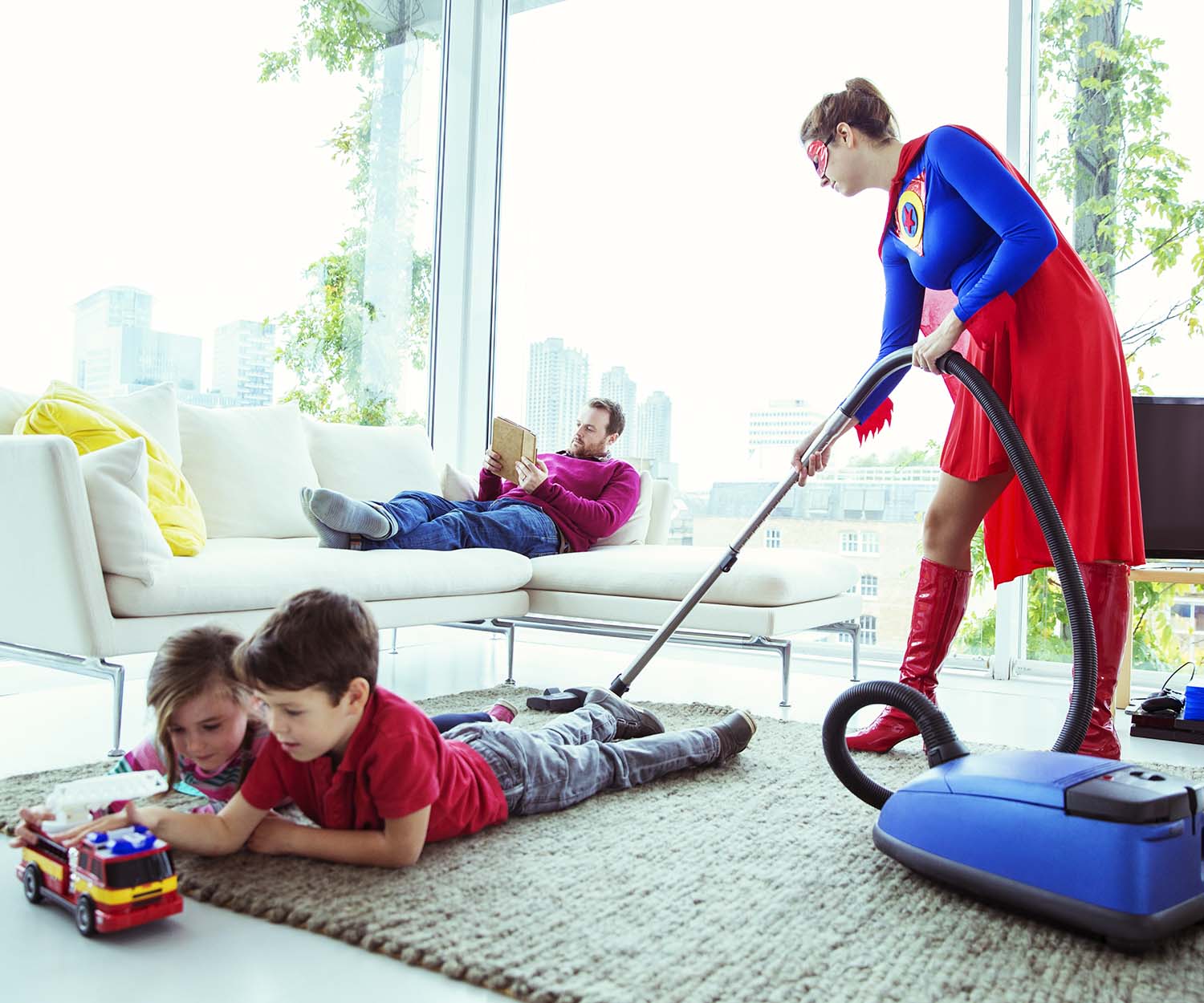Despite the progress we have made in terms of gender equality, women still do more housework than men and a new study has found the frustrating reason why.
Men spend a third as much time as women on housework, with women spending, on average, an hour and 20 minutes per day cooking, cleaning and doing laundry while men spend only about half an hour.
A new study has found that it comes down to… wait for it… societal expectations – from both men and women.
Women are judged more harshly than men for having a messy home by both genders, and their awareness of this motivates them to clean more.
In a study published in Sociological Methods and Research researchers asked 327 men and 295 women of various ages and backgrounds to assess two versions of a photo of a living room and kitchen area. In the first photo the area was clean and tidy, in the second it was messy.
The men and women both rated the room the same – identifying messy as messy and clean as clean.
But when participants were then told that the photo they were looking at showed either “John’s” or “Jennifer’s” living space, things got interesting.
They were asked to rate Jennifer’s and John’s character — how responsible, hardworking, neglectful, considerate, and likable they were — based on the cleanliness of their home.
They were also asked to assess the extent to which Jennifer or John might be judged negatively by unexpected visitors, and how much responsibility they believed Jennifer or John would bear for housework if they were working full-time and living alone, working full-time and married with children, or a married, stay-at-home parent.
The results showed that participants held higher standards of cleanliness for Jennifer than they did for John.
Oh dear.
When they were told the tidy room belonged to Jennifer, they judged it less clean and more likely to inspire disapproving reactions from guests than when the same exact room was John’s.
And in the case of the messy room, even though John’s character was rated more negatively than Jennifer’s for having a messy home, reflecting a common stereotype that men are lazy, participants did not believe John would be any more likely than Jennifer to suffer negative judgment from visitors.
Participants were also more likely to believe that Jennifer would bear primary responsibility for cleaning the room, especially if she was married and even if she also worked full-time.
So what’s the take-out from this? That as much as stereotypes around women and cleaning remain, women are as much to blame as men for judging other women and expecting women to take primary responsibility for cleaning.
Turns out we haven’t moved on from the 1950s as much as we thought we had.
The study was undertaken by Sarah Thebaud, associate professor of sociology at the University of California, Santa Barbara, Leah Ruppanner, associate professor in sociology at the University of Melbourne, and Sabino Kornrich, assistant professor of Sociology at Emory University.


